Michael Collins: The Dictator?
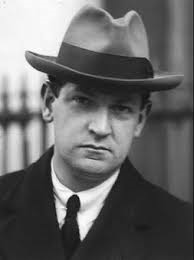
Was Michael Collins the founder of Irish democracy or an aspirant dictator? By John Dorney
People invest a lot in Michael Collins. As a result of his death at the age of 31 at Beal na Blath, he will forever be ‘the lost leader’.
Perhaps, some imagine, he could have made Ireland in his own image; youthful dynamic, forward-looking. Perhaps, others think, he could have realised some of the dreams of the independence movement – a united Ireland, an economically prosperous country. As a result of his early death, we will never know.
There is, however, another ‘might-have-been’. Under the pressure of Civil War, on July 12, 1922, Michael Collins left the Provisional Government of the Irish Free State and made himself Commander in Chief of the pro-Treaty National Army.
He vested supreme control of the Free State military in a three-man War Council composed of himself, Richard Mulcahy and Eoin O’Duffy. At the same time he indefinitely suspended the meeting of the Third Dail or parliament and suspended habeas corpus, the right not to be arrested without charge.[1]
Was Michael Collins, the lost leader, a potential military dictator?
Could the ‘Big Fella’ have become a military dictator had he lived longer? There were certainly some at the time who thought so.
Anti-Treaty political leader Eamon de Valera wrote after the outbreak of Civil War, ‘The Dáil has not been allowed to meet. [This is] a military dictatorship with English guns and armoured cars. The Irish people want a Republic, they do not want an English King. Some have been induced to give the appearance of submission by the threat of war.’[2]
Historian John Regan writes, ‘the absence of any legislative body meant that the Provisional Government was not accountable to any other institution and in the circumstances this granted Collins, in theory if not in practice, dictatorial powers.’[3]
Is it possible that Michael Collins, had he lived, would have assumed absolute power for himself, and that the new Irish state would have become some kind of military dictatorship?
The case against Collins
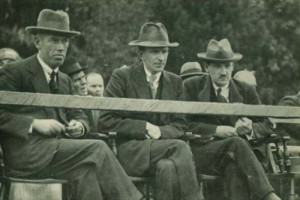
Anti-Treaty Republican invective against Collins basically took two forms. One was that he was the head of the secret Irish Republican Brotherhood and through that body, aimed to cut across all institutions that got in his way.
Indeed, they argued that he had signed the Anglo-Treaty itself behind Eamon de Valera, the President of the Irish Republic’s back in December 1921 an subsequently used the machinations of the IRB to get the Treaty accepted by the Dail in January 1922.
Cathal Brugha, for instance alleged that up to forty TDs voted for the Treaty as result of their IRB affiliation.[4]
One argument against Collins was that he exercised a secret power through the Irish Republican Brotherhood, another that he was a puppet of the British.
There is no doubt that the IRB, with Collins at its head, did have disproportionate influence in high places within the Republican movement, in ways that often bypassed the formal structures both of the Republican Dáil and of the IRA. Senior IRB figure, Séan Ó Muirthile, later admitted that, ‘Collins kept the IRB Supreme Council informed of peace negotiations with the British [and] was glad to have the approval of his IRB colleagues before accepting the Treaty’.[5]
This was an astounding admission given that they had signed the document without waiting for the approval of the Republican Cabinet or its President, de Valera.
Collins’ fellow members of the War Council created in July 1922, Eoin O’Duffy and Richard Mulcahy were also members of the Brotherhood. Suspicions about the malign influence of the Brotherhood were therefore not without hint of truth. However, many leaders of the ant-Treaty IRA, including their Chief of Staff Liam Lynch, were also IRB members. The Brotherhood was not all-powerful, nor could Collins simply wave it like a magic wand and force its members to do as he pleased.
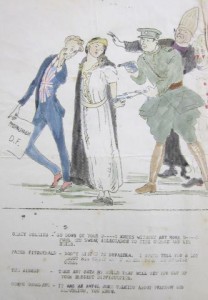
The second and probably more damaging strand of the Collins-as-dictator line was that he was essentially a puppet of the British, installed by them in Provisional Government in 1922 to ‘usurp the Irish Republic.
De Valera characterised Collins’ Provisional Government as ‘a usurpation pure and simple’.
By his logic the Provisional Government was simply a British installed ‘coup d’état’ put in power by ‘a series of unconstitutional and illegal acts prompted by the threats of the enemies of our country’.The Second Dáil had never been dissolved and war had been declared on the ‘soldiers of the Republic’ before the Third Dáil – elected in June 1922 – ever got a chance to meet.[6]
Civil War polemics aside, was there any basis for this? Collins could point out that he was elected to his position as head of the Provisional Government and that the Treaty itself had been passed by a free vote of the Dail on January 6, 1922.
Moreover, Collins and his colleagues claimed that their stance was vindicated by the support of the electorate in the Free State’s first general election, held on June 16, 1922, in which his pro-Treaty faction won a majority of seats. When, ostensibly in response to the seizure of a National Army General, JJ O’Connell by the anti-Treatyites in the Four Courts, they opened fire on that building, the Provisional Government claimed they were upholding ‘the will of the people’. They declared;
Collins assumed power as Commander in Chief of the National Army in July 1922, ruling through a three man War Council and refusing to let the Dail meet.
Since the close of the General Election at which the will of the people was ascertained, further grave acts against persons and property have been committed in Dublin by persons pretending to act without authority … It is the duty of Government to which the people have entrusted their defence … to protect and secure all law-respecting citizens without distinction.
They cited the ‘the ‘seizing’ of General O’Connell as the final provocations in a long list. ‘Outrages against the nation must cease once and forever’.[7]
There was a very serious problem with this version however. The first was that the Third Dail elected in June 1922 was due to sit on July 1, but did not due to the attack on the Four Courts on June 28. Thus the democratic government that Collins claimed to be representing had not yet been convened, much less had it approved the start of military operations.
Moreover, that the parliament did not meet was almost certainly because the British government insisted that the Four Courts must be attacked first. Diarmuid O’Hegarty wrote to the British on Collins behalf that ‘The Provisional Government has no intention of tolerating this [threats made by the Four Courts garrison] … and requests assistance by placing at our disposal this information to which you refer [referring intelligence cited by the British that the Four Courts garrison planned attacks on British targets]. We will then call Parliament on July 1, to support measures they think adequate.[8]
The ensuing cabinet discussions have apparently been destroyed, but the British ordered their own troops in Dublin to attack the Courts and only rescinded the order when Collins’ National Army troops took on the job. Anti-Treaty Republican Laurence Nugent thought that Winston Churchill had ordered the Provisional Government to attack the Four Courts before the Dáil could sit because he was afraid de Valera might be re-elected as President. ‘Was it a Civil War?’ he later pondered ‘or the continuity of the War of Independence against England?’[9]
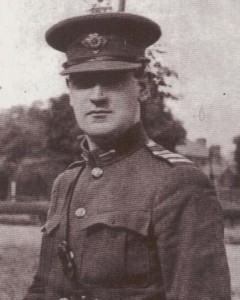
Collins could of course point out that had he not attacked the Four Courts garrison, who had been defying the law of the Provisional Government since the previous April, it would simply have meant the return of British occupation and the ruin of all he had fought for.
He wrote Liam Lynch in July 1922, ‘The time for face-saving is passed, the choice is between the return of the British and the Irregulars [anti-Treatyites] sending in their arms to the people’s government.’[10]
However, the Dáil elected in June still had not met and after the attack on the Four Courts, Collins prorogued it again until 15 July. Collins assumed the role, on the outbreak of fighting, as Commander in Chief of the National Army as well as de facto head of the Provisional Government.[11]
While Collins defended the attack on the Four Courts as a defence of democracy, he weakened the argument, not only by proroguing the meeting of the Dáil, but also by announcing a ‘war council’ of three men, himself, Richard Mulcahy and Eoin O’Duffy, who would direct the pro-Treaty war effort.[12] After several postponements, Collins proposed on 5 August that they should ‘postpone parliament until we clean this matter up definitely.’[13]
Collins intended to prorogue the Dail until the civil war was over.
In other words, Collins’ intention was that the parliament was not to meet until after the end of the Civil War and in the meantime martial law would exercised by a military council of three men. John Regan writes of this situation, ‘the military gained control of civil, military and through the treatyite dominated Irish Republican Brotherhood’s agency, extra constitutional powers within the Treatyite regime’.[14]
When Diarmuid Crowley, the Supreme Justice of the Dail Courts ruled that anti-Treaty prisoners who had not been charged must be freed and that the Dail must convene, Collins’ government abolished the Court.
In addition to this, heavy censorship was placed on the press and habeas corpus – the right to trial before detention – was suspended. Regan argues that it was only Collins’ death, as well as the insistence of the Labour Party that ensured that the Third Dail finally met in September 1922.
That the Irish Free State, eventually became a liberal democracy was, goes this argument, no thanks to ‘Mick’.
The case for Collins
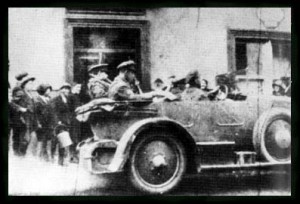
In Collins’ defence, however authoritarian his practices during the crisis of the outbreak of Civil War may have been, there is no indication that he had any plans to make himself into a military dictator.
Collins’ writings in fact show an explicit commitment to democratic principles.
In a long memo written to the cabinet in July 1922, Collins wrote that the Civil War was ‘a fight for national freedom’ for the ‘freest and most democratic system yet devised’ and that ‘the Army has to recognise that it is the servant and not the master of the people’. The parliament he wrote ‘is now the controlling body’. [15]
Collins, had he had the chance to defend himself in later years, from charges the was an aspirant dictator, would no doubt have argued that putting off the opening of the Third Dáil in July and August 1922 was merely a short-term emergency measure and not a portent of any kind of dictatorship.
Collins, had he lived, could have argued that putting off the opening of the Third Dáil was a short-term emergency measure similar to those taken by Abraham Lincoln in comparable circumstances.
He might have cited the parallel between himself and Abraham Lincoln, the American President during that country’s civil war. Like Collins, Lincoln’s enemies characterised him as a ‘tyrant’ and like Collins, Lincoln did take all the measures he felt necessary to win the Civil War and save the Union. In 1861 for instance, he too suspended habeus corpus, imposed censorship and military courts and shut down the legislatures of ‘disloyal’ states such as Maryland.[16]
Just like Collins, Lincoln justified such measures on the grounds that he was fighting so that ‘government of the people for the people and by the people shall not perish from the earth’.[17] Regarding the suspension of habeas corpus, Lincoln contended that it was necessary if the laws of the Union were to have any meaning, ‘are all the laws [of the United States] but one [the right to trial] to go unexecuted?’ he wrote.[18]
Michael Collins in the same vein could argue that if he took a few shortcuts to save the nascent Irish democracy, the means were justified by the ends. And many Irish historians have taken up this line.
Tom Garvin for instance wrote, ‘Democracy was essentially imposed forcibly in Ireland against the wishes of a section of a new and inexperienced political class, much of which saw itself rather than the voters, as the rightful rulers. Collins repeatedly referred to the people as ‘our masters’ during the Treaty debates and to state that bluntly was an unwelcome proposition’. [19]
The Collins counterfactual
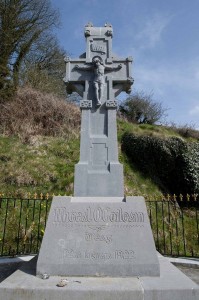 Of course, such arguments can never really be resolved because Collins met an untimely death in an anti-Treaty IRA ambush in West Cork in August 1922. It may very well be that Collins would have overseen the evolution of the Free State into a parliamentary democracy once the emergency of the Civil War was over.
Of course, such arguments can never really be resolved because Collins met an untimely death in an anti-Treaty IRA ambush in West Cork in August 1922. It may very well be that Collins would have overseen the evolution of the Free State into a parliamentary democracy once the emergency of the Civil War was over.
But there is some evidence that Collins had undemocratic designs for the new state. The main reason for this is that he was not in fact a British puppet, but viewed the Treaty simply a tactical step towards a fully independent all Ireland Republic.
When drafting a new constitution for the IRB ‘after a duly elected government has been established’, he wrote;
‘the policy of the IRB shall be to utilise every power and movement in the nation, it shall influence them in their activities and coordinate them these activities… to secure the maximum organised strength of the Nation – armed, political, social and otherwise – shall be available for its objectives’.
[And]
‘while accepting the the present government of the Saor Stait [Free State] the Supreme Council of the IRB is declared the sole government of the Irish Republic until full independence is achieved and a permanent Republican government is established. The authority of the Supreme Council shall be unquestioned by members.’[20]
it is possible that Collins contemplated maintaining the veneer of democratic government while secretly controlling the bodies of state through the IRB in order to further Republican goals
In other words, it is possible that Collins contemplated maintaining the veneer of democratic government while secretly controlling the bodies of state through the IRB in order to further Republican goals.
What was more, he had not ruled out further war in the North to unite Ireland in the future. He wrote on 26 July: ‘we now have a force that means something in future dealings with Britain and the North East … The present fight [The Civil War] is only training for our troops, it gives our soldiers confidence’.[21] Three days later Collins wrote: ‘I am forced to the conclusion that we may yet have to fight the British in the North East.[22]
If these really were Collins’ plans, then he has something in common, not with the totalitarians of the left or right of that era, but certainly with other nationalist leaders such as Mustafa Kemal Atatürk in Turkey or Josef Pilsudski in Poland. Both were military leaders who managed to rid their countries of foreign occupation. Both openly espoused democracy and the rule of law, but in the interests of ‘stability’ and ‘national unity’ both ended up as semi-dictators.
Atatürk enacted a democratic Republican constitution for Turkey in 1924, but ‘deferred’ it indefinitely. It did not come into practice until 1950. In the 1930s, Atatürk allowed only one party, his own CHP (‘Republican People’s Party), to operate.[23] In the case of Pilsudski, in 1926, arguing that the Polish parliament could not handle the vital issues of war with the Soviet Union, economic crisis and land reform, he staged a coup d’etat. And while parliament the Sejm, continued to function thereafter, it was subordinate to him.[24]
Whether Collins would, or could or would have wanted, to have gone down a similar road, we will simply never know.
John Dorney’s book, The Civil War in Dublin the Fight for the Irish Capital 1922-1924, is available from Merrion Press and all good bookshops.
References
[1] John Regan, Myth and the Irish State (Dublin: Irish Academic Press, 2013), pp. 121
[2] De Valera Papers , UCD P150 /1588.
[3] John Regan, Myth and the Irish State, p.91
[4] Hopkinson, Green Against Green, pp. 44–5.
[5] O Muirthile Testimony to Army Inquiry, Mulcahy Papers UCD P7/C/13.
[6] De Valera to P Gaffney TD, 23/10/22 De Valera Papers P150/1647.
[7] Statement, 28 June 1922, Mulcahy Papers UCD P7/B/192.
[8] O’Hegarty to Lloyd George, De Valera Papers UCD P150/1625.
[9] For the Britsih threat see, Hopkinson Green Against Green, pp. 116–17. for Nugetn’s view, Laurence Nugent BMH WS 907.
[10] De Valera Papers UCD P150/1647.
[11] He informed the cabinet of this decision on 1 July, Cabinet minutes, Mulcahy Papers, UCD P7/B/244.
[12] Cabinet Meeting, 12–18 July 1922, Mulcahy Papers UCD P7/B244.
[13] Collins to Government 5/8/1922, Mulcahy Papers UCD P7/B29.
[14] John Regan, Myth and the Irish State (Dublin: Irish Academic Press, 2013), pp. 91
[15] Collins memo to Cabinet, July 1922 Mulcahy Papers P7/B/28.
[16] James McPherson, The Battle Cry of Freedom, The American Civil War, pp.436, 287-289, 595-596.
[17] Lincoln’s famous Gettysburg Address, online here http://www.abrahamlincolnonline.org/lincoln/speeches/gettysburg.htm
[18] McPherson, Battle Cry of Freedom, p.288
[19] Tom Garvin, 1922, The Birth of Irish Democracy, p.168.
[20] Regan, Myth and the Irish State, p.1926-127
[21] 26 July 1922, Collins memo on General Situation, Mulcahy Papers UCD P/7B/28.
[22] Mulcahy Papers UCD P/7B/29.
[23] Martin Heper, Sabri Sayari, Political Leaders and Democracy in Turkey, p.21
[24] M. B. B. Biskupsk Independence Day: Myth, Symbol, and the Creation of Modern Poland, p.46
,